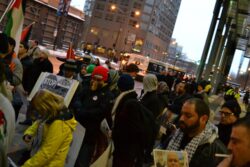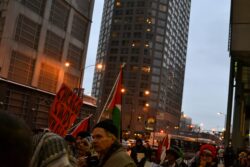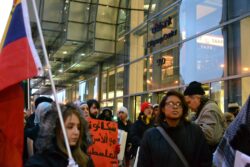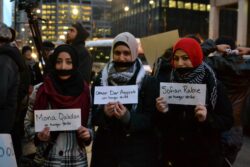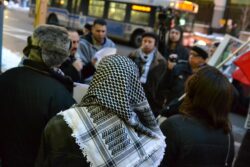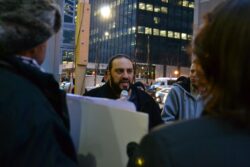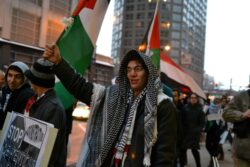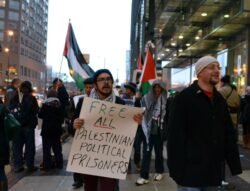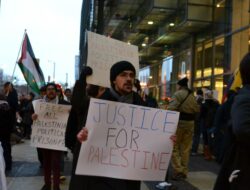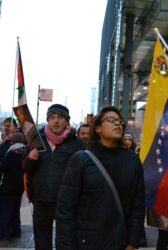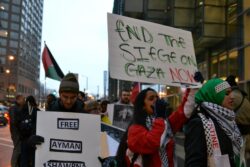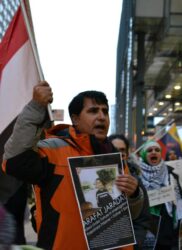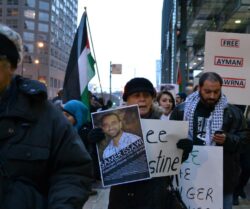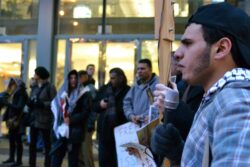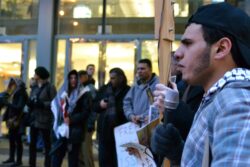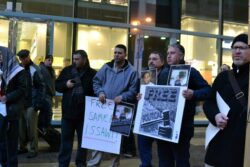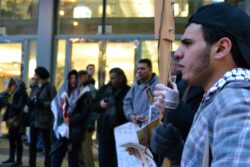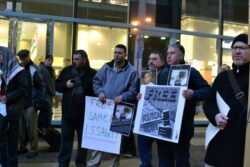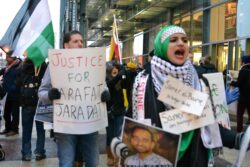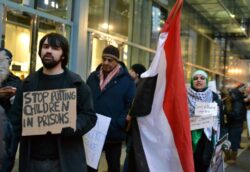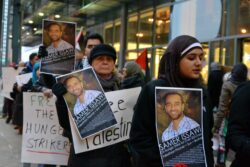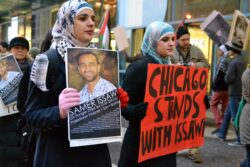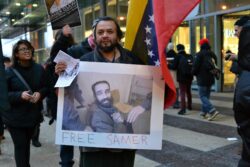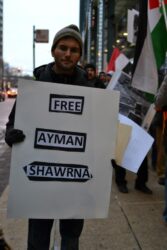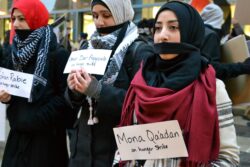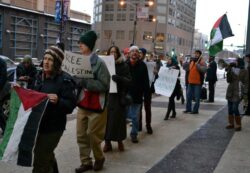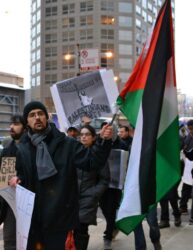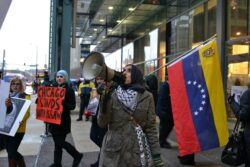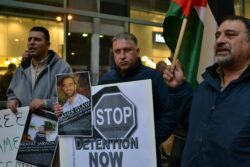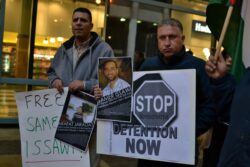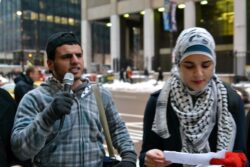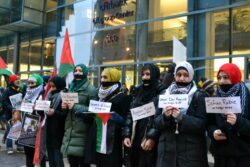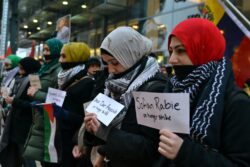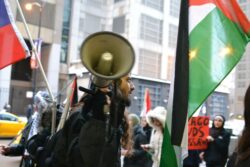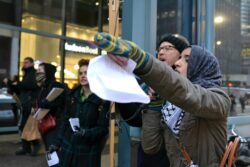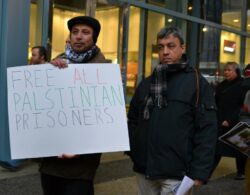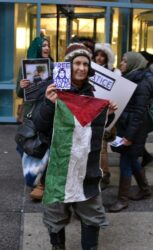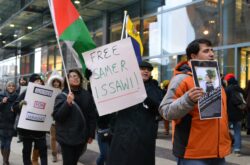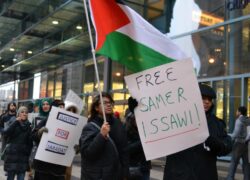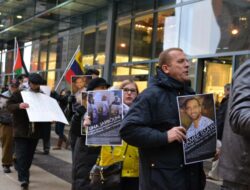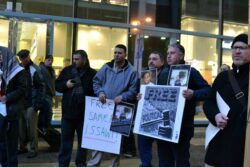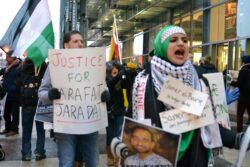 On April 17 – International Palestinian Prisoners Day – we call on all activists around the world to contact their leaders and –
On April 17 – International Palestinian Prisoners Day – we call on all activists around the world to contact their leaders and –
Demand justice for Arafat Jaradat and Maysara Abuhamdieh and
Demand freedom for Samer Issawi and all Palestinian political prisoners.
We call on activists in the U.S., to contact President Obama and the State Department, Wednesday, April 17, from 8 AM to 4 PM CST, to take action.
“My name is _____ from __________ and I demand that:
– the US administration sanction Israel for the deaths of Arafat Jaradat and Maysara Abuhamdieh and
– demand that the Israelis release hunger striker Samer Issawi and all the Palestinian administrative detainees and political prisoners held by Israel.”
1) Call President Obama at 1-202-456-1111
2) Call US Secretary of State John Kerry at 1-202-647-4000 (pick option 4 for the operator and ask to leave a message for Kerry) and the Office of Near East Affairs at 1-202-647-7209 (you will get transferred to Marguerite Pickett to leave a message)
Also be part of the ongoing worldwide campaign on Twitter at 2PM CST on Weds. to demand the release of Samer Issawi. Check @samerissawi1 for the hashtag to use.
For updates on the worldwide campaign, follow “The Free Samer Issawi Campaign” page on Facebook
https://www.facebook.com/
There are still over 4,800 Palestinian political prisoners held in Israeli jails, including children and administrative detainees (jailed without charge or trial). Over the past month we’ve seen Samer Issawi remain on hunger strike for over 260 days until he wins freedom without conditions; we’ve seen Arafat Jaradat tortured to death in Israeli prison; and Maysara Abuhamdieh die of cancer after being refused proper medical treatment by the Israeli prison service. The Israelis have continued their illegal policies of jailing Palestinians without charge or trial, jailing children in violation of all international laws, and torturing prisoners regardless of their age or gender.
But we have also seen the resistance of Palestinian prisoners to this repression through waves of hunger strikes throughout the Israeli prison system. We’ve seen Palestinians taking to the streets to protest the treatment of the men and women who resist the occupation of their land. And we’ve also seen the protests by Palestine solidarity activists around the world supporting the demand for justice and freedom for all Palestinian political prisoners.
Issawi had been detained by Israeli authorities without any charge whatsoever. He had been released from prison in October 2011 as a part of the Shalit prisoner swap, but was detained again without charge on July 7, 2012, and has been refusing food since August 2012 to protest his detention.
Sponsored by:
Palestine Solidarity Group (PSG) – Chicago
U.S. Palestinian Community Network (USPCN) – National
USPCN – Chicago
Jewish Voice for Peace (JVP) – Chicago
Committee Against Political Repression (CAPR)
Coalition to Protect People’s Rights (CPPR)
Committee to Stop FBI Repression (CSFR)
International Jewish Anti-Zionist Network (IJAN) – Chicago
American Muslims for Palestine (AMP) – Chicago
Students for Justice in Palestine from NEIU, University of Chicago, and Northwestern University

 Facebook:
Facebook: 
 Join the Palestinian community and Palestinian activists from across Chicago for our “Intifada Theater” production in support of International Palestinian Prisoners Day. April 17 is the day when activists around the world demand justice and freedom for all Palestinian political prisoners.
Join the Palestinian community and Palestinian activists from across Chicago for our “Intifada Theater” production in support of International Palestinian Prisoners Day. April 17 is the day when activists around the world demand justice and freedom for all Palestinian political prisoners.

 Friday, March 15 Call-in Day
Friday, March 15 Call-in Day